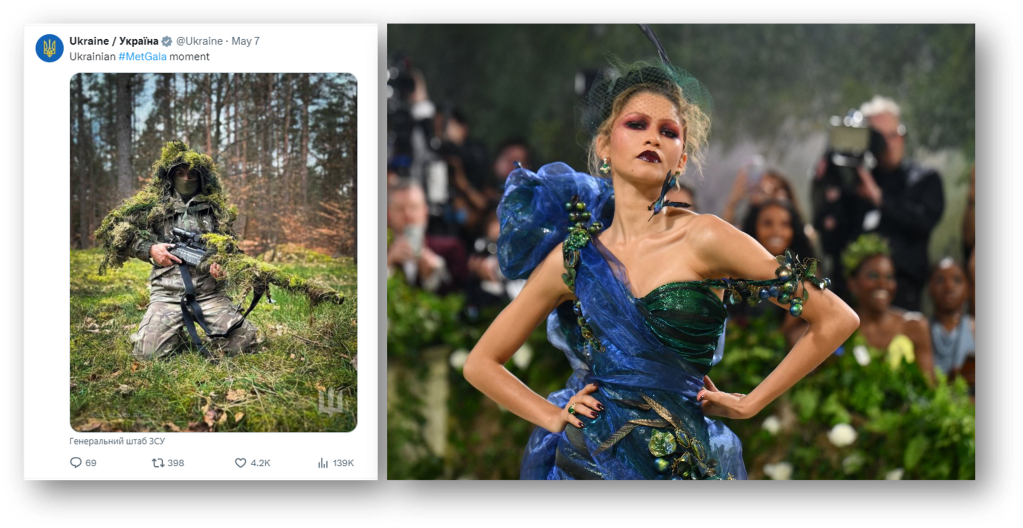Diplomacy is not immune to the Covid-19 virus. For the first time since the 17th century, diplomats and world leaders no longer meet face-to-face to address shared challenges or resolve shared grievances. The UN is closed, the WTO is out of session and G7 meetings take place through video conference calls. Embassies, traditionally tasked with maintaining ties between governments and peoples are also closed, or operating at a limited capacity. Ambassadors cannot open art exhibits; press attachés are unable to court journalists while consular departments are not open to the public. Nearly all mechanisms of modern diplomacy have come to a grinding halt.
There is, of course, one diplomatic domain that remains active, that of social media. Multi-lateral institutions such as WHO, world leaders and Embassies are still active online. One might wonder what Embassies have to discuss at such a time? This blog offers one answer to this questions.
France in the UK
The French Embassy to London is one of the most active Embassies in the UK. During regular weeks, the Embassy tweets about trade, the future of French-UK relations following Brexit and tourist destinations in France. Given its frequent of use of Twitter, and the fact that UK-French relations are now being re-imagined, I analyzed the Embassy’s Twitter activity over the past three weeks. My first goal was to identify the issues currently addressed by the Embassy. Analyzing more than 60 Tweets I identified 10 such issues.
The most prevalent issue was that consular aid. Like many of its peers, the French Embassy offered assistance and information to French citizens hoping to return home during the COVID outbreak, as well as publishing emergency phone numbers and email addresses where the Embassy could be contacted. The second most prevalent issue was that of a coordinated, or joint, response to the COVID outbreak. Many of these tweets focused on European attempts to share resources during the crisis, while formulating a shared strategy to exit the crisis. Other Tweets included a statements issued by G7 leaders following a video conference call calling to governments not to adopt protectionist economic policies. The third most prevalent issue was that of culture. A large number of Tweets shared cultural resources with British Twitter users ranging from French language lessons to books and plays that could be streamed online. Notably, all of the Tweets suggested that if Brits were under lockdown, they might as well enjoy French cultural gems. Examples of these tweets may be found below.
Consular Aid:
Coordinated Response:
Cultural Promotion:
Several French Tweets also offered British Twitter users tips for surviving the lockdown such as communicating with friends, going out for walks and maintaining a daily routine. Only five Tweets out of 63 dealt with a joint, bi-lateral response to the COVID-19 virus. These tweets focused on trade and the importance of securing the free movement of goods and people. Thus, while the French Embassy emphasized European collaborations, it barely addressed bi-lateral ones. Examples of such Tweets may be seen below.
Tip for Lockdown:
UK-French Response:
Among the lest prevalent issues addressed by the Embassy were best-wishes to the British Prime Minister who contracted the Corona virus; health guidelines published by either the UK or French government; financial stimulus packages announced by the French government; details on French quarantine measures and finally one Tweet dealt with future planetary challenges caused by climate change. The graph below entails the prevalence of each issues addressed by the Embassy.

Conclusions:
Social media is one of the last domains of diplomacy that is presently active. In this post I sought to understand how Embassies utilize Twitter during a global pandemic. Unsurprisingly, the French Embassy focused primarily on delivering consular aid to citizens living or stranded abroad. It is, however, surprising that the Embassy barley addressed possible bi-lateral collaborations, given that Embassies are tasked with facilitating such collaborations. Notably, British users following the French Embassy will learn mostly about European responses to COVID-19. Yet that might be deliberate. It should be mentioned that the French Embassy did publish two tweets dealing with NATO’s coordinated response to COVID-19, an organization which the UK still belongs too.
Another important finding is the prevalence of French culture. At a time in which billions of digital users are stranded at home, searching for the next show to stream, Embassies could share digital cultural resources in the form of language lessons, movies, plays and even Opera. Cultural promotion during lockdown could have important benefits once the lockdown has ended.




Leave a comment